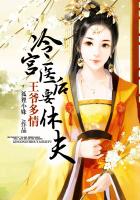(July 1835)
History of the Revolution in England, in 1688. Comprising a View of the Reign of James the Second from his Accession to the Enterprise of the Prince of Orange, by the late Right Honourable Sir JAMES MACKINTOSH; and completed to the Settlement of the Crown, by the Editor. To which is prefixed a Notice of the Life, Writings, and Speeches of Sir James Mackintosh. 4to. London:
1834.
[In this review, as it originally stood, the editor of the History of the Revolution was attacked with an asperity which neither literary defects nor speculative differences can justify, and which ought to be reserved for offences against the laws of morality and honour. The reviewer was not actuated by any feeling of personal malevolence: for when he wrote this paper in a distant country, he did not know, or even guess, whom he was assailing. His only motive was regard for the memory of an eminent man whom he loved and honoured, and who appeared to him to have been unworthily treated.
The editor is now dead; and, while living, declared that he had been misunderstood, and that he had written in no spirit of enmity to Sir James Mackintosh, for whom he professed the highest respect.
Many passages have therefore been softened, and some wholly omitted. The severe censure passed on the literary execution of the "Memoir" and "Continuation " could not he retracted without a violation of truth. But whatever could he construed into an imputation on the moral character of the editor has been carefully expunged.]
It is with unfeigned diffidence that we venture to give our opinion of the last work of Sir James Mackintosh. We have in vain tried to perform what ought to be to a critic an easy and habitual act. We have in vain tried to separate the book from the writer, and to judge of it as if it bore some unknown name. But it is to no purpose. All the lines of that venerable countenance are before us. All the little peculiar cadences of that voice from which scholars and statesmen loved to receive the lessons of a serene and benevolent wisdom are in our ears. We will attempt to preserve strict impartiality. But we are not ashamed to own that we approach this relic of a virtuous and most accomplished man with feelings of respect and gratitude which may possibly pervert our judgment.
It is hardly possible to avoid instituting a comparison between this work and another celebrated Fragment. Our readers will easily guess that we allude to Mr. Fox's History of James the Second. The two books relate to the same subject. Both were posthumously published. Neither had received the last corrections.
The authors belonged to the same political party, and held the same opinions concerning the merits and defects of the English constitution, and concerning most of the prominent characters and events in English history. Both had thought much on the principles of government; yet they were not mere speculators. Both had ransacked the archives of rival kingdoms, and pored on folios which had mouldered for ages in deserted libraries; yet they were not mere antiquaries. They had one eminent qualification for writing history: they had spoken history, acted history, lived history. The turns of political fortune, the ebb and flow of popular feeling, the hidden mechanism by which parties are moved, all these things were the subjects of their constant thought and of their most familiar conversation. Gibbon has remarked that he owed part of his success as a historian to the observations which he had made as an officer in the militia and as a member of the House of Commons. The remark is most just. We have not the smallest doubt that his campaign, though he never saw an enemy, and his parliamentary attendance, though be never made a speech, were of far more use to him than years of retirement and study would have been. If the time that he spent on parade and at mess in Hampshire, or on the Treasury bench and at Brookes's during the storms which overthrew Lord North and Lord Shelburne, had been passed in the Bodleian Library, he might have avoided some inaccuracies; he might have enriched his notes with a greater number of references; but he would never have produced so lively a picture of the court, the camp, and the senate-house. In this respect Mr. Fox and Sir James Mackintosh had great advantages over almost every English historian who has written since the time of Burnet. Lord Lyttelton had indeed the same advantages; but he was incapable of using them. Pedantry was so deeply fixed in his nature that the hustings, the Treasury, the Exchequer, the House of Commons, the House of Lords, left him the same dreaming schoolboy that they found him.
When we compare the two interesting works of which we have been speaking, we have little difficulty in giving the preference to that of Sir James Mackintosh. Indeed, the superiority of Mr. Fox to Sir James as an orator is hardly more clear than the superiority of Sir James to Mr. Fox as a historian. Mr. Fox with a pen in his hand, and Sir James on his legs in the House of Commons, were, we think, each out of his proper element. They were men, it is true, of far too much judgment and ability to fail scandalously in any undertaking to which they brought the whole power of their minds. The History of James the Second will always keep its place in our libraries as a valuable book; and Sir James Mackintosh succeeded in winning and maintaining a high place among the parliamentary speakers of his time. Yet we could never read a page of Mr. Fox's writing, we could never listen for a quarter of an hour to the speaking of Sir James, without feeling that there was a constant effort, a tug up hill. Nature, or habit which had become nature, asserted its rights. Mr. Fox wrote debates. Sir James Mackintosh spoke essays.















